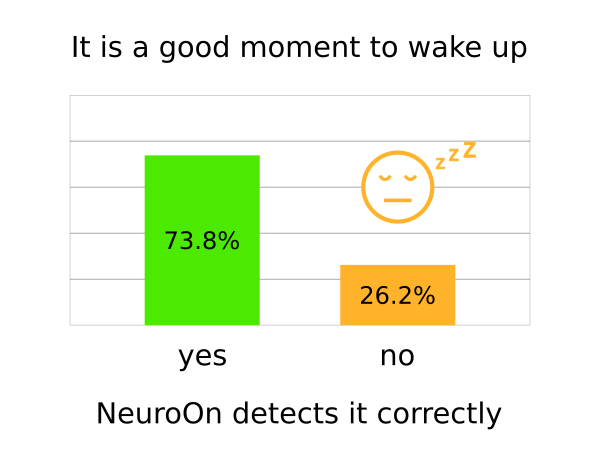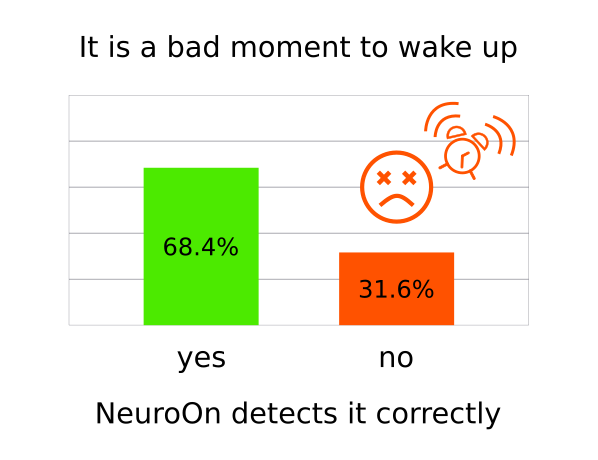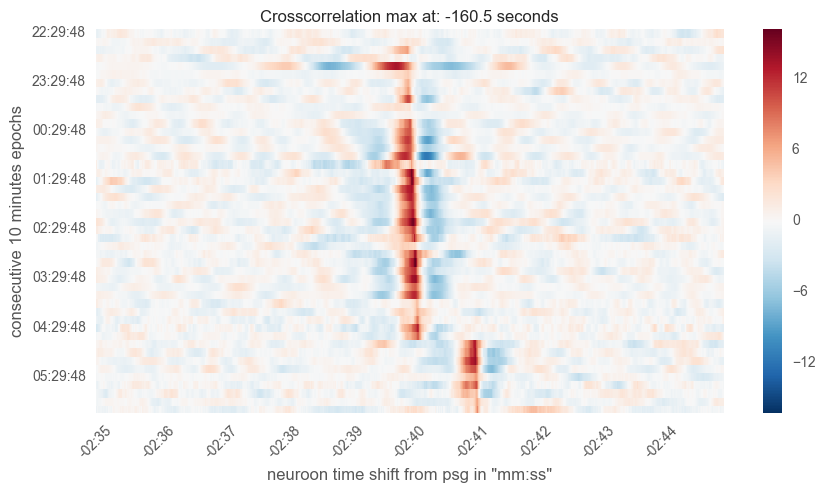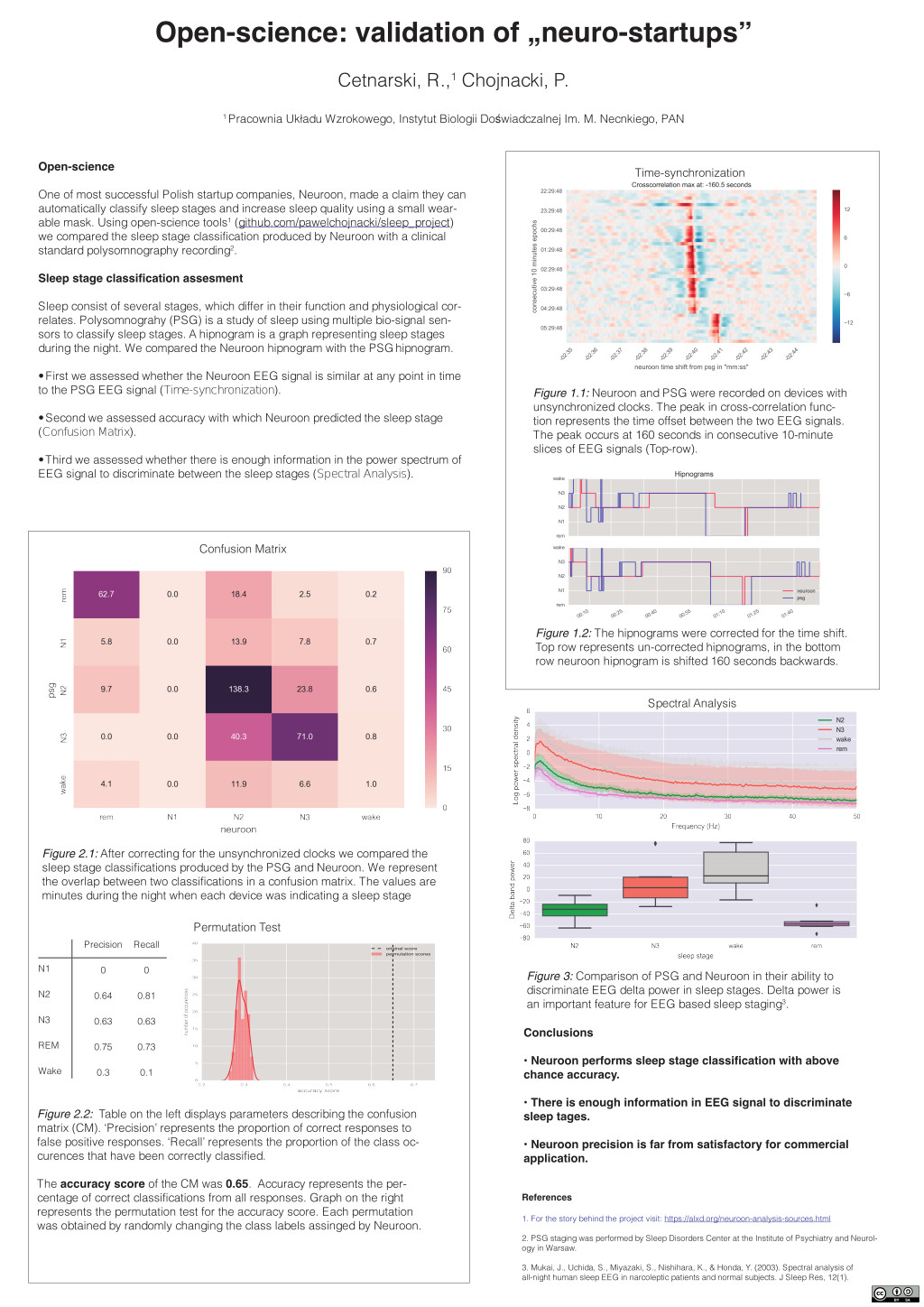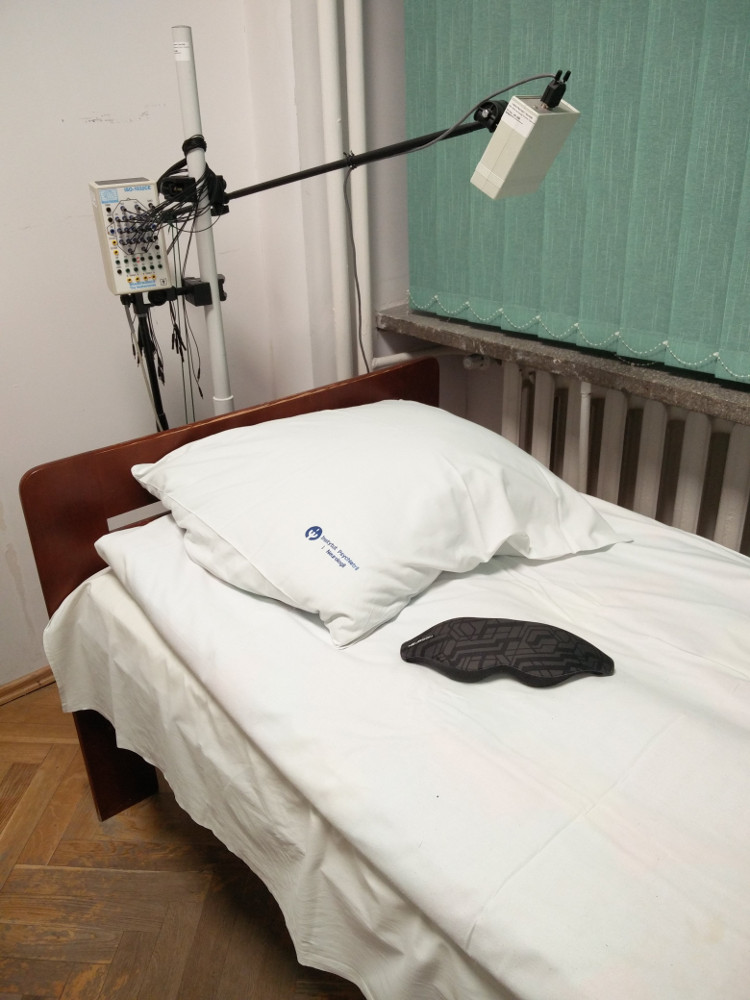NeuroOn analysis - results and discussion
Posted on Mon 19 December 2016 in misc
Updated twice, last on 21 December 2016. Notes below.
tl;dr - So, does it work?!
NeuroOn, the self-proclaimed "world's first smart sleep mask" isn't a medical grade device, but it's much better than a coin toss.
Its total accuracy in detecting sleep stages is 65%.
One of the biggest problems with NeuroOn is that when used as an alarm clock almost every third time (31.6%) it will choose the worst possible moment for waking, assuring lack of energy and grogginess1 after awakening.
Comparing NeuroOn's sleep stage results to a professional polysomnography2 scored by a human expert:
When polysomnography detects a sleep phase suitable for waking up, NeuroOn agrees in 73.8% of the cases. In the rest 26.2% it isn't a big deal, since it will just wait until the next good opportunity to wake you up.
When polysomnography says not to wake the user up, NeuroOn agrees in 68.4%. In the rest 31.6% - nearly a third of all cases - it could try to wake the user, resulting in …
Continue reading
